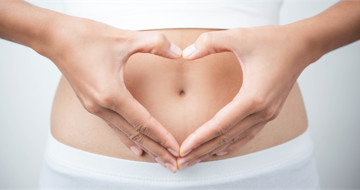For individuals managing Short Bowel Syndrome (SBS) or related digestive conditions, adapting dietary habits is crucial for maintaining nutritional balance and enhancing quality of life. Here are some practical nutritional tips tailored to the unique needs of SBS patients:
1. Oral Nutrition Strategies
- High-Calorie, Nutrient-Dense Meals: Aim for a diet providing 50-60 kcal/kg/day, enriched with fluids and nutrients, but low in fiber to ease digestion.
- Easily Digestible Foods: Focus on foods that are gentle on the digestive system, aiming for a light and balanced diet.
- Fats: Limit intake of long-chain triglycerides in favor of medium-chain triglycerides (MCTs), which make up to 50% of the energy intake. MCTs are more easily absorbed and less likely to contribute to steatorrhea.
- Proteins: Ensure adequate protein intake, around 20% of total energy (1.5 – 2.0 g/kg/day), with a preference for milk proteins like yogurt, quark, and low-fat cheese for their calcium content.
- Vegetables and Juices: Start with wholemeal bread and soft vegetables, and incorporate freshly squeezed vegetable juices. If whole foods are challenging, consider nutrient-defined or chemically defined formula diets as nutritional drinks or via feeding tubes.
- Vitamin Supplementation: Especially after extensive intestinal resection, an initial supplementation of vitamins, such as 100 mg of vitamin C daily, is advisable.
- Meal Frequency: Opt for frequent, smaller meals (6-9 times a day) and avoid drinking fluids with meals to prevent diluting digestive enzymes. Practice alcohol abstinence.
2. Enteral (Tube) Feeding
- Long-Term Nutrition: When oral intake is insufficient, enteral nutrition via tube feeding is recommended, particularly with significant loss of the small intestine.
- Nutrition Delivery: Utilize pump-controlled, metabolism-adapted, and initially diluted, nutrient-defined or oligopeptide diets, especially in cases with more than 75% loss of the small intestine.
- Diet Composition: Tailor the energy content and nutrient composition of the enteral diet to mirror oral nutrition principles as closely as possible.
3. Parenteral Nutrition
- For Severely Shortened Bowel: In cases where the remaining bowel is extremely short (under 60 cm) and nutritional status does not improve with enteral nutrition, parenteral nutrition becomes necessary.
- Combination with Oral/Enteral Feeding: Whenever feasible, combine parenteral nutrition with some form of oral or enteral intake to stimulate the remaining intestine and promote functional adaptation (“absorption training”).
Regular Monitoring
- Vital for All Feeding Methods: Regardless of the nutrition method, regular monitoring of body weight, plasma proteins, serum electrolytes, fluid balance, vitamin and trace element status, as well as stool and urine output, is essential for optimal management.
